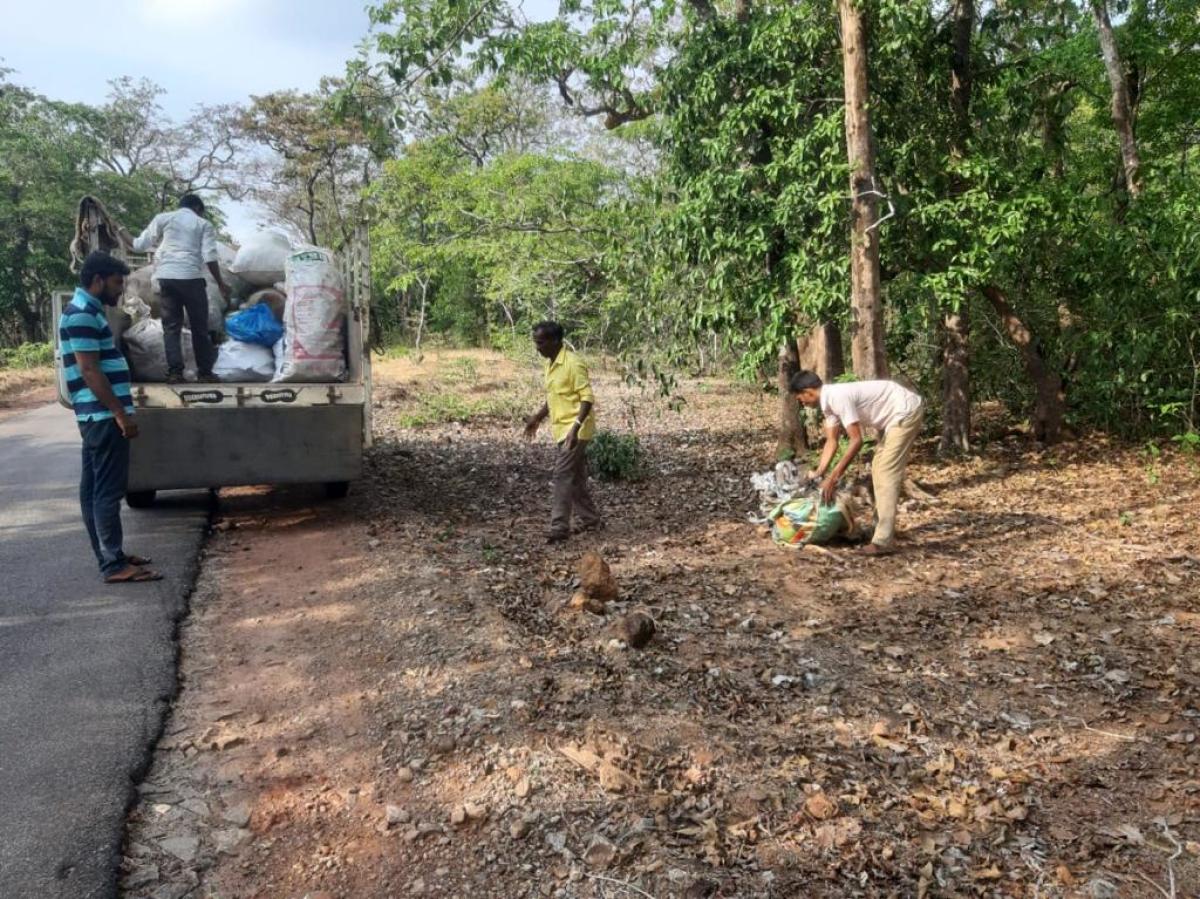Plastic Liquor Bottles and Wildlife Conservation

The Kallar elephant corridor area is home to an array of wildlife species, including elephants, tigers, leopards, and several others. Unfortunately, this region has also become a hotbed for plastic and liquor bottle wastage, which threatens the survival of these animals. The plastic and liquor bottles littered across the elephant corridor area pose a significant risk to the wildlife, as they can choke or entangle them.
A recent cleanup drive conducted by the Forest Department and WWF-India in the Kallar elephant corridor area revealed the gravity of the situation. The team of volunteers collected eight sacks of glass liquor bottles and 25 sacks of plastic garbage from the corridor. The removal of waste from this area was long overdue, as the plastic waste was accumulating, posing a serious threat to the wildlife that calls this region home.
The impact of plastic waste on wildlife is alarming. Animals can accidentally ingest plastic debris, leading to blockages in their intestines, indigestion, and even death in severe cases. Furthermore, plastic litter can also entangle animals, resulting in injury or death caused by strangulation. Plastic liquor bottles, particularly, pose an even higher risk to wildlife since they contain alcoholic drinks that could intoxicate the animals.
Wildlife conservation efforts must prioritize the removal of plastic waste and liquor bottles from areas inhabited by animals to prevent a further decline in animal populations. It is essential to raise awareness about the impact of litter on wildlife, particularly the dangers posed by plastic waste and liquor bottles.
Here are a few tips to minimize plastic waste and liquor bottles in areas inhabited by wildlife:
1. Reduce the use of plastic bottles and switch to reusable bottles
2. Properly dispose of plastic waste and liquor bottles and encourage others to do the same
3. Develop alternative waste management practices that consider wildlife preservation
4. Conduct regular cleanups of areas inhabited by wildlife to remove plastic waste and liquor bottles
In conclusion, plastic waste and liquor bottles pose a significant threat to wildlife conservation. It is our collective responsibility to protect and preserve the natural habitat of animals that call these areas their home. By following the tips mentioned above and raising awareness about the impact of litter on wildlife, we can ensure a brighter future for these precious creatures.